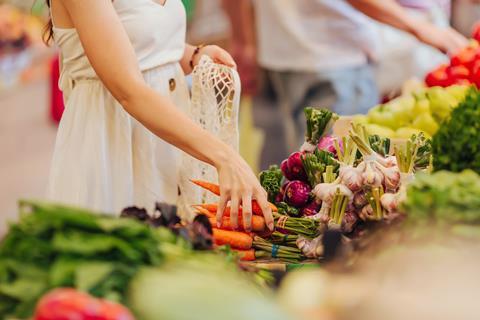Report calls on policymakers to implement measures protecting the supply of affordable fresh produce to consumers and ensuring the viability of the sector
The Global Coalition of Fresh Produce (GCFP) has released a report analysing the current global trading environment for fresh fruits and vegetables.

The report argues that fruits and vegetables are a critical element of the shift towards healthy and sustainable diets, as well as an engine of economic growth and job creation the world over.
However, the GCFP has pointed out that a number of challenges are currently threatening the long-term economic viability of the fresh produce sector worldwide, and thereby economic stability, food security and health.
These challenges include substantial increases in costs, inefficiencies and delays in transportation, labour shortages, dwindling consumer purchasing power and obstacles to international trade, among other factors.
Rising costs
“Our sector has shown great resilience in the face of the Covid-19 pandemic and has guaranteed consumers’ access to healthy and nutritious products,” said Ron Lemaire of the Canadian Produce Marketing Association and chairman of the Coalition. “But rising costs will ultimately be passed on to consumers in the form of reduced supplies and higher prices.”
According to the report, such an outcome will make it harder for consumers the world over to eat a healthy diet.
Indeed, to keep their food expenses in check, people will increasingly rely on low-cost staple foods or turn to unhealthy calories, such as those from soft drinks, GCFP noted.
In addition, the economic difficulties faced by fresh produce exporters in developing countries counter the impact of efforts towards poverty reduction, and threaten the livelihoods of millions of families.
The report calls upon national and international policymakers to urgently implement a number of measures to safeguard the supply of affordable fresh fruits and vegetables to consumers worldwide – and ensure the viability of a sector that is an important contributor to the economies of developed and developing countries alike.
“First and foremost, governments and international bodies across the globe should recognise fruits and vegetables as essential goods,” said Robert Guenther, chief public policy officer for the International Fresh Produce Association, and a member of the Coalition’s steering committee.
“By establishing that fruits and vegetables are fundamental to the health of populations and an essential element in the shift towards more sustainable food systems, other measures can be unlocked to ensure their consistent supply,” Guenther stated.
Suggested measures
Among the measures advocated in the report are helping fresh produce operators shoulder the burden of increased energy bills; promoting the creation of safe and good-paying jobs in the fresh produce industry and in transportation, and encourage young people to pursue careers in these sectors; and ensuring undisrupted and priority access for fresh fruit and vegetables to all transportation networks, and develop integrated, multimodal transportation solutions.
The report also called for the creation of priority lanes for imported fresh produce, to ensure quick offloading and transit in seaports and other points of arrival and the elimination of inefficiencies at seaports, implementing measures to minimise bottlenecks and improve operational practices to ensure the seamless movement of fresh produce.
Finally, the Coalition said that the business should work towards the harmonisation and mutual recognition of sanitary, phytosanitary and other market entry requirements to enable operators to seize export and import opportunities, and that the promotion of the consumption of fruits and vegetables can be boosted by exempting fresh produce from value added tax, stepping up information campaigns and offering more fruits and vegetables through school feeding programmes.
“By virtue of their health benefits and low environmental footprint, fresh fruits and vegetables are an essential part of the solution to global problems such as climate change and malnutrition,” said Philippe Binard, general delegate of Freshfel Europe and member of the GCFP.
Unless effective measures are implemented urgently, the report argues, the current challenges facing the sector will have long-lasting impacts on economies – and consumers – the world over, including bankruptcies, legal disputes, food inflation, food shortages and more. “It is time to take action,” Binard added.



